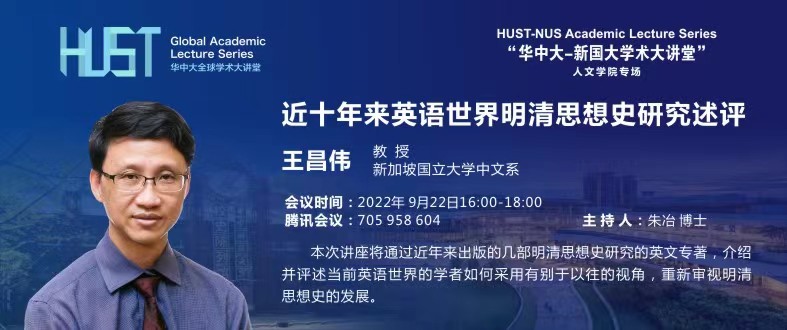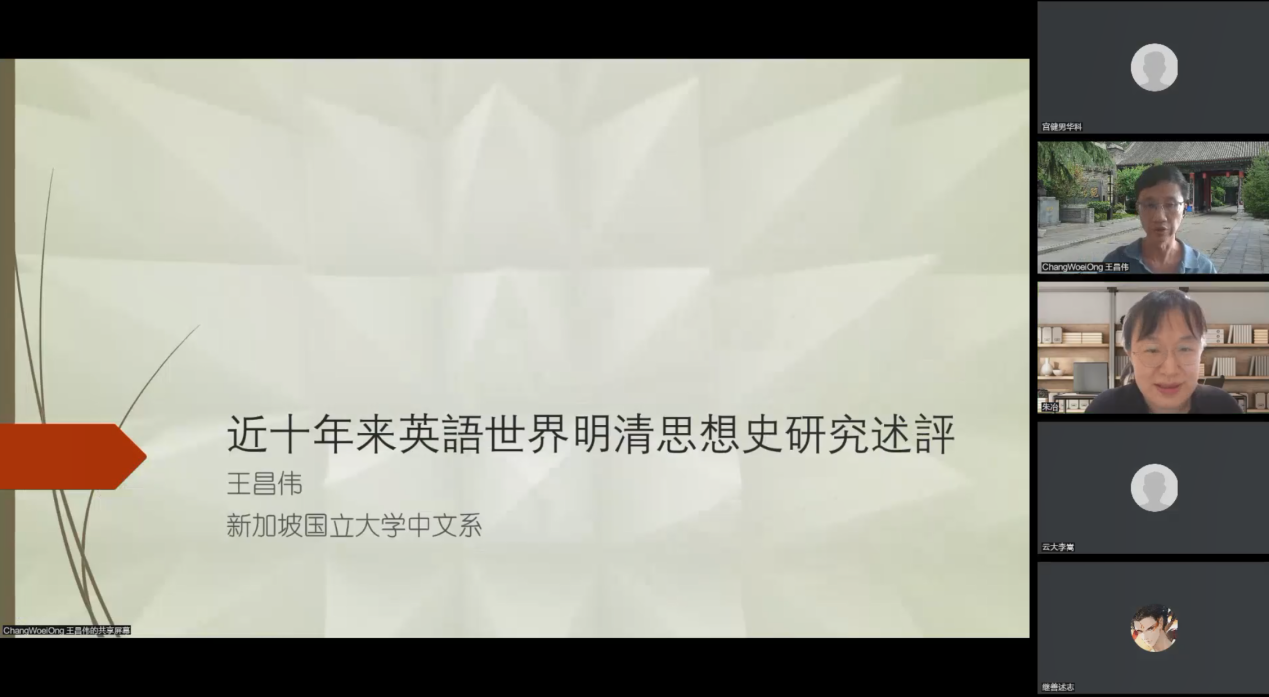On September 22, 2022, the "HUST-NUS Academic Lecture" was held online as scheduled. The topic of this lecture was "A Review of the History of Ming and Qing Thought in the English-speaking World in the Last Decade", which was given by Prof. Chang Woei Ong of NUS and moderated by Mrs. Zhu Ye of the School of Humanities of HUST. Many teachers and more than 80 students from HUST and other universities across China attended this lecture.

Professor Chang Woei Ong studied with Professor Peter K. Bol (包弼德), a renowned expert in the history of Chinese thought at Harvard University, and has conducted in-depth research on the history of Chinese thought and Chinese local history.
At the beginning of the lecture, Prof. Chang Woei Ong introduced the lecture with two debates in Western academia. The first debate took place between William Theodore de Bary and Frederick W. Mote. The second debate is Ying-shih Yu 's criticism of Xin-zu Qian 's book Chiao Hung and the Restructuring of Neo-Confucianism in the Late Ming. Three questions about how to study Chinese thought have been derived from the two debates. One is, if scholars are concerned with the history of thought, what should they do? Can one impose on the ancients the ways and experiences of present-day people to see the problems? Is it possible to use Western theories and research frameworks to analyze Chinese thought?

Based on the above three questions, Prof. Chang Woei Ong analyzes some of the English-language works on the history of Ming and Qing thought published in the last decade from three dimensions: time, space and research objects.
In the temporal dimension, Prof. Chang Woei Ong mentioned three books share a common temporal focus on modernity. So how do we understand modernity? Chang Woei Ong also mentioned While Chinese scholars tend to use dynastic staging, Western scholars often use Late Imperial or Early Modern to discuss China's Ming and Qing periods.
In the spatial dimension, Prof. Chang Woei Ong takes these three studies as examples, pointing out that more and more scholars are no longer confined to regional and country-specific histories, but are examining the changes in the Ming and Qing dynasties and the world from a broader perspective, such as globalization. In fact, these issues may not have been realized by the ancients themselves at the time, so can we adopt a modern perspective on the ancients today? This is still a question to be discussed.
With Prof. Chang Woei Ong's brilliant explanation, the lecture was successfully concluded. The lecture brought students an enlightened view of the international sinological community's research on the Ming and Qing dynasties, sorted out the academic history of modern Western scholarship on the Ming and Qing dynasties, and helped them understand the cutting-edge issues that are of interest to the academic community.
The students who participated in the lecture said that through this lecture, they had a deeper understanding of the methods and paradigms of Ming and Qing research at home and abroad, and had a more in-depth reflection on the hotly debated issue of "modernity" that is hotly debated in Western academia.